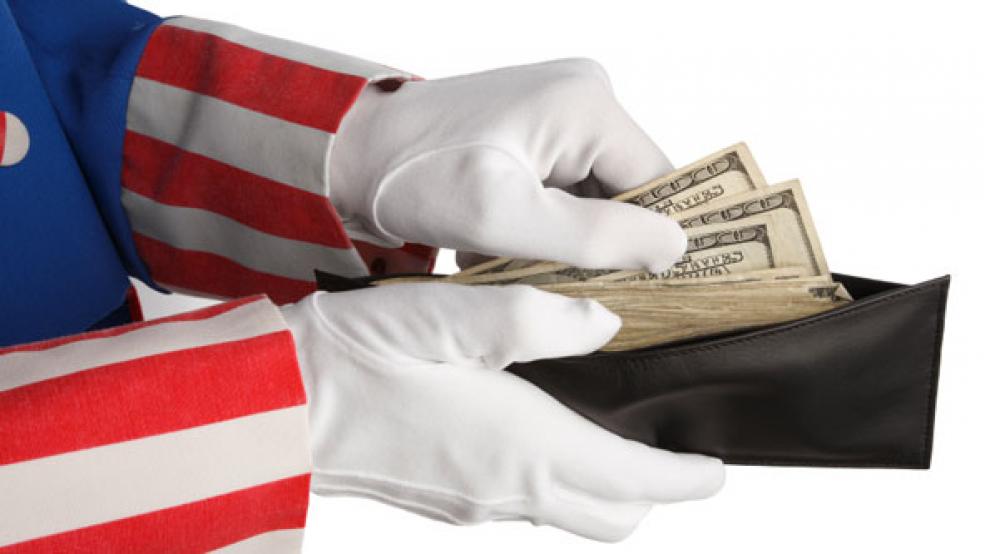Here's something to ponder: All 50 states regulate hair dressers, but only four—California, Oregon, Maryland and New York—specifically regulate tax preparers.
"The consequences of a bad tax return are much more serious than a bad haircut," said Chi Chi Wu, staff attorney at the National Consumer Law Center.
Related: The 10 Worst States for Taxes in 2014
How much do you know about the person you'll pay to do your tax return? Are you sure, really sure, they're qualified to do the job properly?
Your tax return is probably the single most important financial document in your life. It not only determines the size of your refund or how much you owe the government each year, but it's often used to verify your income for many other important financial transactions, such as student loans, a home mortgage, alimony or child support payments and social welfare programs. So, you want it done right.
While certified public accountants are licensed and enrolled agents are credentialed by the IRS, the vast major of tax preparers in this country do not have to meet even minimum standards for education, training or competency.
Related: Taxes 2014 - 10 Apps to Make Filing Easier
A recent consumer law center report, "Riddled Returns," analyzed years of mystery shopper testing by government agencies and consumer groups. The report concluded that the lack of regulation has allowed "widespread abuses" by paid tax preparers, which hurt both their clients and the U.S. Treasury. "We found incompetence and outright fraud," Wu said. "And it wasn't just a few bad actors. We saw this over and over again."
David Rothstein, director of research and public affairs at the Neighborhood Housing Services of Greater Cleveland, would like to see all tax preparers regulated. His organization does mystery shopping at storefront tax preparation services. "We've seen a lot of people told not to report cash income because it will lessen their refunds," Rothstein said. "Or they're told, 'Come to us and we'll get you a bigger refund than the other guys.' Obviously, if they're doing it correctly, you should get the same refund no matter where you go."
The National Association of Tax Professionals, the largest trade group for tax preparers in the U.S., supports federal regulation.
"Oversight is not a bad thing. Regulation is not a bad thing," said Cindy Hockenberry, who manages the association's Knowledge Center. "There are so many industries that require licensing, why not the tax preparation industry? You're dealing with people's finances, and the penalties for doing things wrong are pretty steep."
In 2011, the IRS proposed regulations to require professional tax preparers to register, pay an annual fee, pass a competency exam and meet continuing education requirements. But the IRS program never got off the ground. Three independent tax preparers sued (Loving v IRS) and won. A federal court ruled the IRS does not have the authority to license tax professionals. The case is now on appeal.
Related: Don’t Make These Top 10 Tax Mistakes
The Institute for Justice, which calls itself the nation's only "libertarian, civil liberties, public interest" law firm, filed that lawsuit. Attorney Dan Albin, who handled the case against the IRS, thinks the choice of a tax preparer is best made by the consumer without any governmental interference. "We believe the taxpayer, not the IRS, should be the one who decides who prepares their taxes," Albin said. "We're opposed to any requirement that you obtain a license from the government in order to prepare taxes."
Albin said tax preparers are already regulated in lots of ways, and the institute does not oppose laws relating to tax fraud or malfeasance. "These are simply protectionist regulations that are designed to help big business," he said, which would put many mom-and-pop preparers out of business.
Robin Williams, director of the Maryland CASH Campaign (Creating Assets, Savings and Hope), doesn't think it's a bad thing if unqualified tax preparers are driven out of the marketplace. That's why she helped get Maryland's tax preparer law passed in 2008. "There needs to be more accountability built into the system," Williams said. "When you pay someone else to do your return, you assume they know what they're doing. The companies that are doing the right thing want regulations to lift the industry's standards."
Williams wants everyone to remember that when you sign that return you are telling the government it's correct, even if you didn't prepare it yourself. If the return is wrong, you could face an audit, civil penalties or even criminal charges. "You shouldn't just be able to hang out a sign and call yourself a tax preparer," she said. The IRS has helpful information on how to choose a professional tax preparer on its website.
This article originally appeared at CNBC.
Read more at CBNC:

